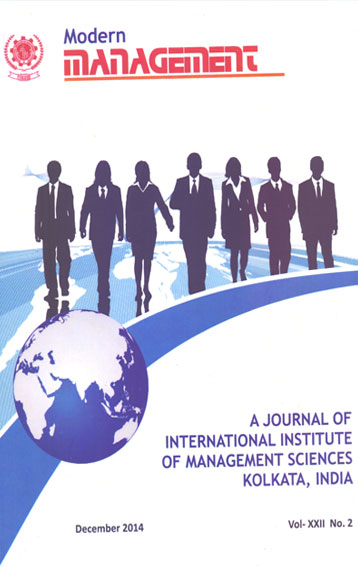Global Academic Research, Management and Social Sciences Projects by IIMS Centre for Research and Application
Research is the Nucleus of any Institute. At IIMS, Research, Project and Publications activities are focal to the primary objective of attaining academic excellence.
IIMS Centre for Research and Application undertakes research & projects and organises Workshops and Seminars on contemporary issues in the interdisciplinary fields of management.
IIMS-CRA has got associated with different Institutes & Covenant Universities, research centres, organisations and corporates, globally for enriching education, Techno-Management Research works, projects, publications and for organizing international conferences and Development Programs, across the globe.
Global Research and Academic Collaboration Partners:
Auckland Institute of Studies, Auckland, New Zealand:
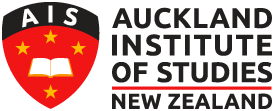 Established in 1990, Auckland Institute of Studies (AIS) is one of New Zealand’s largest private degree-granting institutions approved by New Zealand Qualifications Authority (NZQA) & enjoys Cat 1 Rank.
Established in 1990, Auckland Institute of Studies (AIS) is one of New Zealand’s largest private degree-granting institutions approved by New Zealand Qualifications Authority (NZQA) & enjoys Cat 1 Rank.
AIS provides wide range of NZQA-approved qualifications, including certificate, diploma, undergraduate degree, graduate diploma, and postgraduate diploma and degree programmes for domestic and international students. AIS offers a variety of courses in business, tourism management, hospitality management, information technology and business administration. Their fast-growing MBA programme is one of the largest in New Zealand, and Their English Language Centre offers qualifications in EFL, EAP, IELTS Preparation and Business English. It’s one of the most Eminent Contributor in the Field of Management and Accounting Research in New Zealand and has got many accolades in past from CPA, and Chartered Accounting Institutes of Australia.
IIMS SOB, in the year 2011 made a novel and unique advancement through an international venture with Auckland Institute of Studies (AIS), Auckland, New Zealand, for conducting overseas MBA and Students Exchange Program, and undergraduate program through cross credit pathway. The program is mainly designed to cater to the ever-growing demand of overseas education amongst the talented Indian students. It aims at reducing the cost of quality education substantially while at the same time ensuring smooth transition to overseas campus under the institute’s arrangements.
UNIVERSITI TEKNOLOGI MARA, MALAYSIA (UiTM):
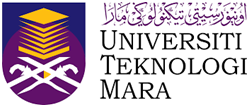 Universiti Teknologi MARA (UiTM) is the Largest public university based out Shah Alam, Malaysia, thatwas Established in 1956 as RIDA (Rural & Industrial Development Authority) Training Centre.
Universiti Teknologi MARA (UiTM) is the Largest public university based out Shah Alam, Malaysia, thatwas Established in 1956 as RIDA (Rural & Industrial Development Authority) Training Centre.
The university comprises one main campus and 34 state campuses. With 18000+ academic and non-academic staffs. UiTM offers over 500 programmes ranging from Foundation to Postgraduate & Doctoral level. It is home to some 180000+ National and international students, in full-time and part-time modes.
In 1967, the college was upgraded to Institute Teknologi MARA. Its establishment came as a response to a need in Malaysia for trained professionals, especially among bumiputras. This shortage was identified through a manpower survey conducted by the government in 1965 collaboration with the United Nations.
Acknowledging the fact that education holds the key to positive social engineering processes, ITM has made education easily accessible primarily to the bumiputras of Malays and indigenous bumiputras of the Malay peninsula (such as Jakun, Senoi), and those from the East Malaysia (such as the Kadazan-Dusun, Melanau, and Dayak).
It mainly catered to semi-professional courses predominantly in the science and technology in fields such as engineering, applied sciences and architecture, building and planning. However, realising the importance of other complementary nation-building fields, it has also included a repertoire of other salient ‘management and humanities-based’ fields such as business studies, hotel and catering management, mass communications, public administration, law, secretarial science, as well as art and design.
By 1973, branch campuses had been set up in Perlis, Sabah and Sarawak. The development of ITM was in three stages. The first phase (1967-1976) came with the declaration of the institute as an autonomous body with its own 300-acre campus in Shah Alam, and was placed under the Ministry of Rural Development. The second phase (1976–1996) saw ITM rapidly harnessing its potential as an institution of higher learning. It led to the passing of the ITM Act of 1976 that placed the institute directly under the Ministry of Education.
The third phase (1996–1999) came about as a result of an amendment to the ITM Act 1976 which granted the institution all the powers of a university and on par with all the universities in the country, despite retaining its name.
Among the significant change was a creation of board of directors and Senate. Many principal officers of ITM were re-designated such as the Branch Director was renamed Rector, the Head of Campus became the Provost, while Principal and Senior Lecturers were re-designated as professors and Malay Associate Professors, respectively; each School was re-designated as a Faculty; ITM was given the power to confer degrees up to Doctor of Philosophy level; ITM was given the unique power to establish courses and campuses abroad with permission from the Minister of Education; the Institute was conferred additional powers to enable it to conduct business, invest in shares, set up companies and engage in commercial research; disciplinary powers over staff were transferred from the Minister to the board of directors; to improve staff accountability, the Institute was bestowed the power to impose a surcharge; and the procedural rights of students in disciplinary proceedings were strengthened.
In August 1999, the Prime Minister Dr Mahathir Mohamad announced the change in name of ITM to Universiti Teknologi MARA, UiTM.With such acknowledgement from the government, a major restructuring exercise was carried out to consolidate the University’s resources for optimum productivity.
The Universiti Teknologi MARA Act 173 was drafted in conjunction with the establishment of UiTM. It is deemed essential as the Act provides guidelines for maintenance and smooth administration as well as other pertaining matters. The Act also serves as an acknowledgement of the institution’s transition from an institute to a university, and the authority bestowed upon it to function like any other university. This includes the offering of courses of studies and the conferment of degrees at all levels with all Other Partnering Institutes Globally.
In the Year, 2016, IIMS joined hands with UNIVERSITI TEKNOLOGI MARA, MALAYSIA (UiTM), which is the Largest Public University in Malaysia for Research, Academic Collaboration, Faculty Exchange, Global Socio-Economic Projects && MPhil & PhD Programs for Executives across Education and Academic Sectors and for Economic & Micro Management Research in different areas.
Hanoi Industrial Textile Garment University, Vietnam:
 Founded in 2015, Hanoi Industrial Textile Garment University is a higher education institution located in the metropolis of Hanoi. Officially accredited and/or recognized by the Ministry of Education and Training, Vietnam, Hanoi Industrial Textile Garment University is a coeducational higher education institution. Hanoi Industrial Textile Garment University offers courses and programs leading to officially recognized higher education degrees in several areas of study.
Founded in 2015, Hanoi Industrial Textile Garment University is a higher education institution located in the metropolis of Hanoi. Officially accredited and/or recognized by the Ministry of Education and Training, Vietnam, Hanoi Industrial Textile Garment University is a coeducational higher education institution. Hanoi Industrial Textile Garment University offers courses and programs leading to officially recognized higher education degrees in several areas of study.
In the Year 2019, IIMS signed MOU with Hanoi Industrial Textile Garment University, for conducting Techno-Management Research, Global Education Projects & Cross Credit Pathways and Many More.
Cavite State University:Cavite State University, (CvSU) (Filipino: Pamantasang Pang-Lalawigan ng Kabite), is a state university in the province of Cavite in the Philippines.
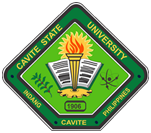 The Cavite State University (CvSU) has its humble beginnings in 1906 as the Indang Intermediate School with the American Thomasites as the first teachers. Several transformations in the name of the school took place; Indang Farm School in 1918, Indang Rural High School in 1927, and Don Severino National Agriculture School in 1958. In 1964, the school was converted into a State College by virtue of Republic Act 3917 and became known as Don Severino Agricultural College (DSAC).
The Cavite State University (CvSU) has its humble beginnings in 1906 as the Indang Intermediate School with the American Thomasites as the first teachers. Several transformations in the name of the school took place; Indang Farm School in 1918, Indang Rural High School in 1927, and Don Severino National Agriculture School in 1958. In 1964, the school was converted into a State College by virtue of Republic Act 3917 and became known as Don Severino Agricultural College (DSAC).
On January 22, 1998, by virtue of Republic Act No.8468, DSAC was converted into Cavite State University. In 2001, Cavite College of Fisheries (CACOF) in Naic, Cavite and Cavite College of Arts and Trade (CCAT) in Rosario, Cavite, were integrated to the University by virtue of CHED Memo No. 27 s. 2000. Since then, additional campuses in the province were established through memoranda of agreement with the LGUs. At present, CvSU has 11 campuses in the province. The main campus, approximately 70 hectares in land area and named as Don Severino delas Alas Campus, is in Indang, Cavite.
CvSU is mandated “to provide excellent, equitable and relevant educational opportunities in the arts, sciences and technology through quality instruction, and responsive research and development activities. It shall produce professional, skilled and morally upright individuals for global competitiveness.”
The University is offering close to 100 curricular programs in the undergraduate and graduate levels. It has more than 25,000 students and 1,200 faculty and staff from all campuses. The University is also authorized to certify and confer appropriate academic degrees in accordance with the Expanded Tertiary Education and Accreditation Program (ETEEAP). It has been accredited by TESDA as Trade and Testing Venue, and designated by the Department of Agriculture as the National Centre for Research and Development for Coffee and Urban Agriculture. It also hosts the Southern Tagalog Agriculture Research and Development Consortium (STARDEC), the Affiliated Renewable Energy Centre for Region IV-A, and the Regional ICT Centre for Region IV-A.
In the Year 2020, IIMS got associated with The Cavite State University, Philippines, for conducting Academic Research and Collaborative Projects &Techno-Management Research, Projects on Global Education &arranging International Programs and Many More.
Recent Global Management Research by IIMS-CRE:
We at IIMS, in accreditation with ICRA, conducting a research on ‘Effectiveness of “Work from Home Model in the Post-Pandemic Era’ for the interest and benefit of the Society & Corporate Sector at large.
Background Objectives:
COVID- 19 Pandemic has stirred a wide range of feelings, emotions and worries across the globe. Social Distancing (Physical Distancing) has raised the possibility of New Work Place rules e.g. Work from Home. We hope, the findings of our study will provide deep insights into the socio-economic development for the Emerging Nations. Hence, in This context, we have formed Research Questionnaire for Your valued opinion which, will enable us to build an appropriate model of Productivity for the future World of Work.
For the Industry & Corporates we are conducting Recent Research on Following Issues and Challenges:
1. Research for MSMEs:
Emergent Opportunities & Enablers Design for MSME Sectors & APMC Registered Companies for driving growth in such Trying Times!
2. Research for Service Sectors, BFSIs and Education Sectors:
Current Challenges Across Service Sectors and HRD Roles in that.
3. Research for Social Sectors& Government Welfare Departments:
Human Development, Through adherence of New Professional skills, Post Covid 19 Pandemic
Also, we do conduct researches for Manufacturing Sectors, Export & Import Sectors and Other Allied Areas of Societies.

Some of IIMS’ Research work published in Books and Journals of repute includes:
About IIMS’ Research Work and Publications
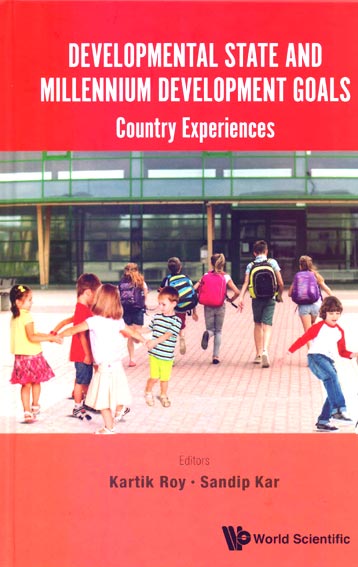
Developmental State and Millennium Development Goals
Prior to the 2016 Sustainable Development Goals, the United Nations (UN) had eight “global goals” set out to all 191 UN member states at that time, and at least 22 international organizations. Seven out of the eight United National Millennium Development Goals are social goals. The attainment of such goals would require a substantial proportion of public sector expenditure. Without a robust rate of economic growth, whatever is achieved cannot be sustainable. Developmental State and Millennium Development Goals argues that this is the main reason why some of the largest developing countries fell short in achieving the goals.
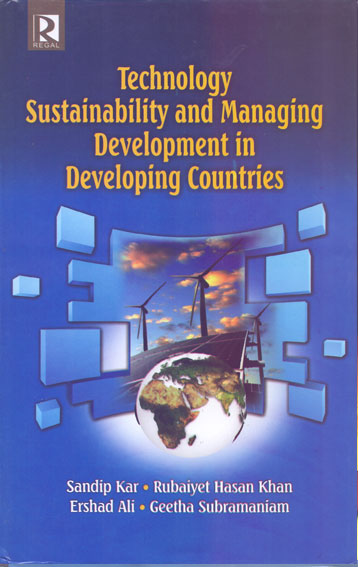
Technology Sustainability and Managing Development in Developing Countries
The current book aims to compile the latest contribution towards the role of technology in development of developing countries. This initiative to summarize the findings of related articles in relation to technological initiatives in development is a distinctive attempt and provides a fresh look towards a very important factor of development as identified in other studies. The book aims to initiate further studies in this field and result in to policy initiatives by the governments of developing countries to truly acknowledge the role of technology in development and embrace the changes which is necessary for successful implementation of development initiatives.
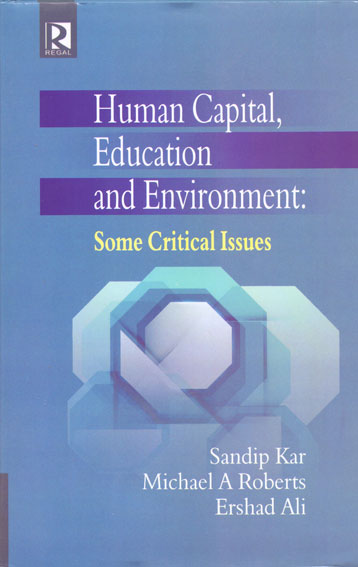
Human Capital, Education and Environment: Some Critical Issues
Sustainable environment and efficient human capital are crucial factors for attaining desired developmental aspiration of every nation. Investment in education does not only contribute in building human capital and environmental sustainability by effective utilization of resources, but it also contributes positively to other socio-economic factors of the society. In this book discussions on the relationship of sustainable environment, human capital, education, poverty and human health as well as discussions on different theories and case studies have been presented.
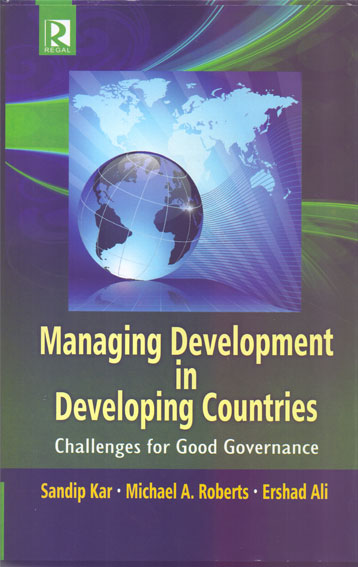
Managing Development in Developing Countries
Managing Development in Developing Countries The UNDP has identified the key elements of development-friendly governance such as the participation of beneficiaries, rule of law,transparency, responsiveness, effectiveness, efficiency and accountability. It is essential how we can maintain pluralistic societies without degenerating into social disintegration with the challenges that we are facing now-a-days. Good governance is thus more than mere sound and efficient public administration.In this book, scholarly written research works by distinguished experts have been presented. The outcome of the book will make a meaningful contribution to illustrate the meaning of development theories.
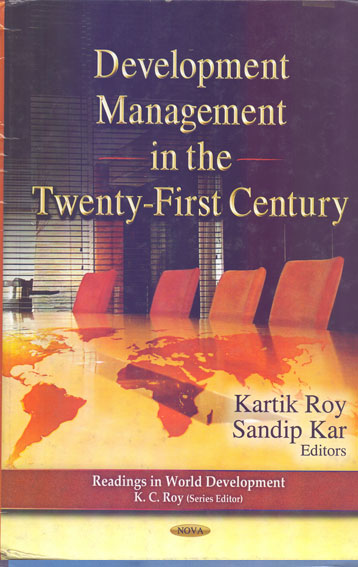
Development Management in the Twenty-First century
This book aims to underline several critical issues which policy makers as well as state and private sector agents are confronted with while implementation of different types of programs to improve social and economic conditions of beneficiaries of these programs. The important factor which enables a development projects to be successfully implemented are simply not the availability of the resources but also more importantly, the efficient management of project implementation process. Therefore this book investigates many such issues, which make the task of development management a complex one indeed.
